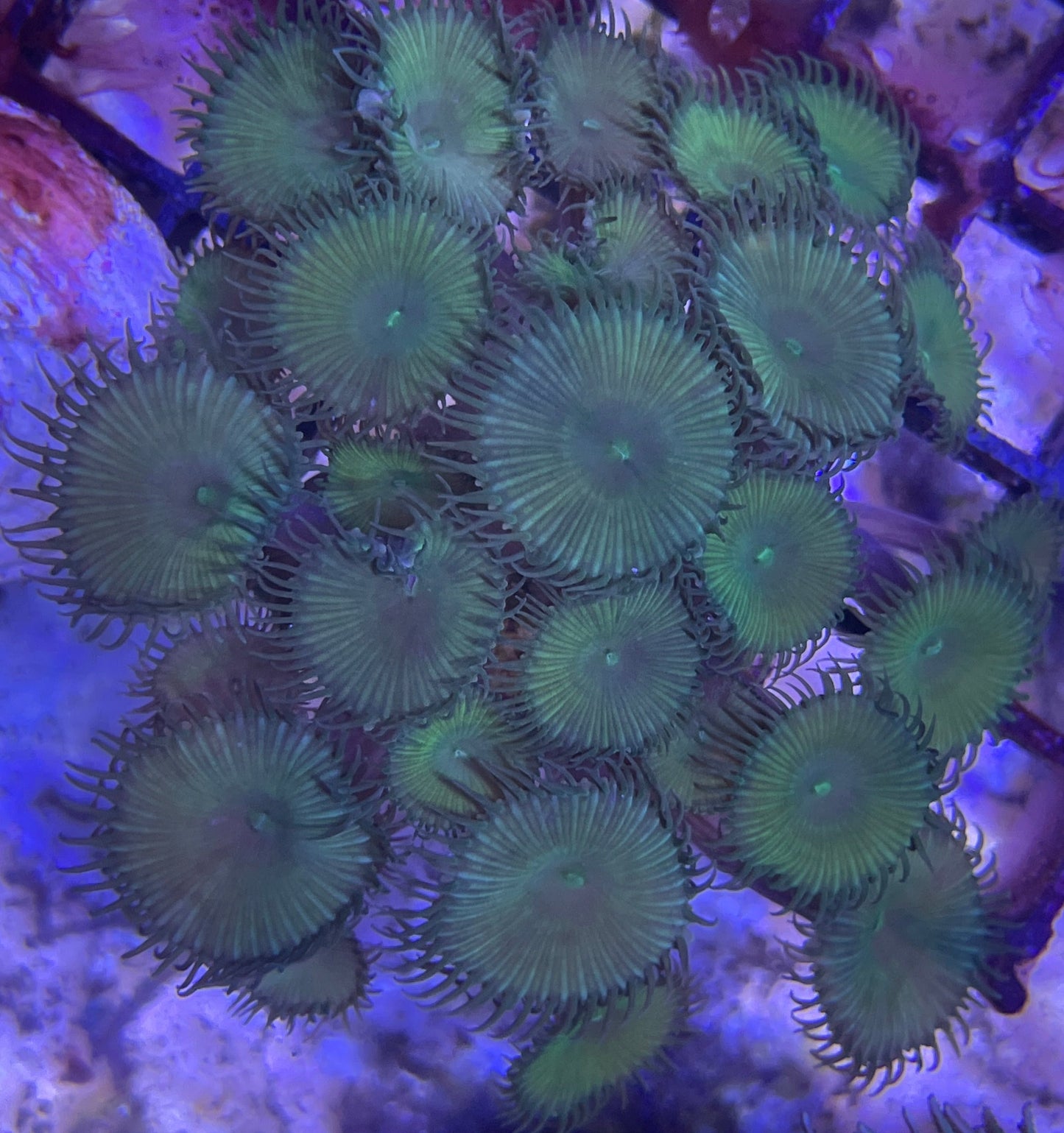Haustierpiraten
Palythoa Toxic Green L offshoot
Palythoa Toxic Green L offshoot
Couldn't load pickup availability
Caution: Poisonous!
Since palytoxin is an extremely potent poison, all encrusting anemones should be handled with care. Wearing gloves when handling such animals is strongly recommended. When handling them outside the tank, good ventilation should be ensured and mouth and eye protection should be worn.
Characteristics:
- Species : Palythoa toxic green (Zoanthids)
- Colour : Bright, poisonous green polyps with a striking contrast that is particularly effective in well-lit aquariums
- Growth form : Polyps grow in dense groups and form mat-like colonies that can spread quickly over large areas
- Light requirement : Medium to high (intense lighting brings out the green color particularly well)
- Current : Moderate current to promote gentle movement of the polyps and support healthy growth
Care instructions: Palythoa toxic green is an easy-care, but potentially aggressive, coral that thrives in a stable aquarium. It requires medium to strong light to develop its vibrant green polyps. This coral can spread rapidly, so care should be taken to ensure it does not overgrow other corals in the aquarium. A moderate current is ideal, as it keeps the polyps gently moving without overstressing them. Because it is a zoanthid, stable water conditions with adequate calcium and alkalinity are required.
Special features:
- Bright green polyps : The intense green colors of the Palythoa toxic green make it a fascinating eye-catcher in any aquarium, especially under strong light.
- Fast growth : This coral grows quickly and forms dense colonies that can spread across the bottom or larger areas in the aquarium.
- Hardy : Despite its rapid spread, it is an easy-care coral that can thrive even under less than ideal conditions.
- Caution when handling : Like many zoanthids, Palythoa toxic green can release toxic toxins that can cause skin irritation upon direct contact. It is recommended to wear gloves when handling this coral. When handling outside the tank, ensure good ventilation and wear eye and mouth protection.
Share


